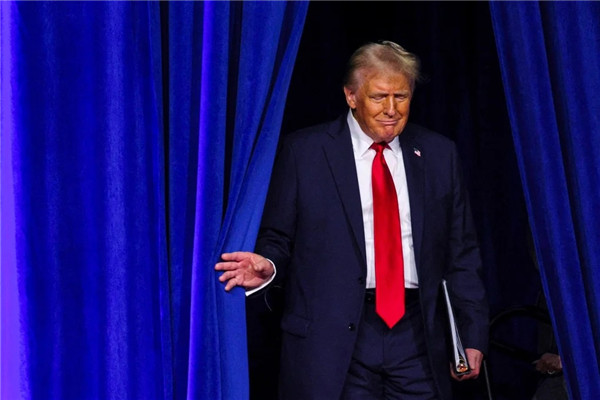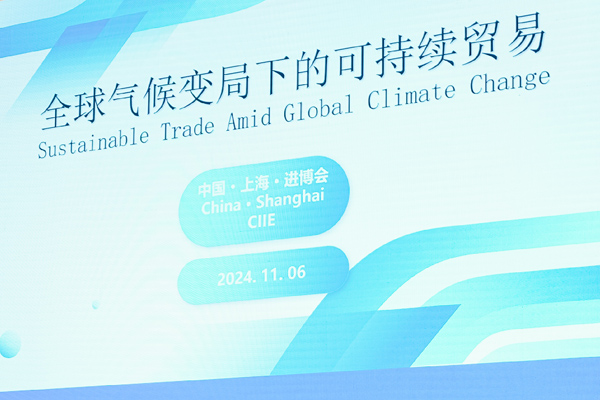A year into the trade war, China learns to ride out Trump’s turbulence
August 27 , 2019BEIJING—President Trump may think he’s keeping Chinese negotiators guessing with his whiplash-inducing remarks about the U.S.-China trade war.
But he’s not fooling anyone here.
More than a year into the deepening commercial conflict, Chinese officials and analysts say they’ve got a handle on the tweeter-in-chief and are no longer fazed by his unpredictable initiatives.
“There is a lot of fatigue with President Trump’s ‘art of the deal,'” said Wang Huiyao, president of the Center for China and Globalization(CCG) and an adviser to China’s cabinet.
“It’s like a roller coaster. Buenos Aires, Osaka, Shanghai. He says one thing one day, then hits the world with a surprise the next day,” Wang said, referring to the sites of high-level, if ill-fated, negotiating sessions. “The more they deal with him, the more they figure him out.”
Trump says China wants to restart trade talks
At the Group of Seven leaders’ summit in Biarritz, France, this weekend, Trump brushed aside complaints that his habit of swerving between tough talk and a sales man’s hype was damaging the global economy.
“Sorry! It’s the way I negotiate,” he told reporters Monday. “It’s done very well for me over the years. It’s doing very well for the country.”
It hasn’t, however, produced a deal that would commit China to make the structural changes in its state-led economy that the administration has been seeking for more than a year.
Trump has announced tariffs that by Dec.15 will cover almost 97 percent of the Chinese merchandise that American companies import, according to economist Chad Bown of the Peterson Institute for International Economics.
By depressing demand for Chinese goods,U.S. tariffs have cost 3 million Chinese factory workers their jobs, according to Trump, and put pressure on Chinese President Xi Jinping to make a deal.
Trump’s claim to have the upper hand at the negotiating table does not appear to have convinced the Chinese.
“They’ve decided Trump is a vacillating guy who can’t figure out what he wants and gets spooked every time the stockmarket goes down or someone accuses him of not being tough,” said Arthur Kroeber, managing director of Gavekal Dragonomics, a consultancy in Beijing.“Although there are problems in China, they believe they have their economy under control, more so than Trump. They think he is more vulner able to as low down and that they can afford to wait him out.”
By early May, the two sides had completed 90 percent of a deal involving major Chinese purchases of American farm, industrial and energy products as well as enhanced protections for foreign companies’ technology and trade secrets, Treasury Secretary Steven Mnuchin said this summer.
But the trade war between the world’s economic superpowers appears to have entered a dangerous new phase this month,with new rounds of retaliatory tariffs and a demand from Trump that U.S. companies stop doing business with China.
That has caused alarm across the globe,with fears that the war could help tip leading economies such as Japan and Germany into recession and create new head winds for the American economy.China’s growth rate has, meanwhile, slowed to its lowest rate in three decades.
Chinese officials were initially mystified by Trump’s unconventional style, and Xi is said to have faced criticism for underestimating Trump’s resolve to tackle China’s trading practices.
But emerging last week from this year’s Communist Party confab at the beach resort of Beidaihe, China’s leadership appears to have decided to hunker down.
“What’s the point of calling Xi Jinping ‘a good friend’ and ‘a great leader’ but still increasing tariffs?” asked Yao Xinchao, a trade professor at the University of International Business and Economics. “He’s a 70-ish-year-old man but speaks like a 7-year-old kid. We just can’t listen to what he says now. I think Chinese leaders have realized this, too.”
Wang Yiwei, a professor of international relations at the Renmin University, shares a similarly disdainful view. “He is a real estate developer; he is a profiteer in the eyes of the Chinese people,”he said.
But the bottom line remains that China,which is experiencing a marked economic slowdown, wants a deal.
“The trade dispute between China and the U.S. should be resolved through dialogue and consultations,” Foreign Ministry spokesman Geng Shuang said Tuesday, adding that the United States’s “maximum-pressure approach hurts both sides and is not in the least constructive.”
“We hope that the U.S. can exercise restraint, return to reason, and demonstrate sincerity in order to facilitate further consultations on the basis of mutual respect and mutual benefits,” Geng said.
The question now is how the two sides find a way out of the standoff.
Wei Jianguo, a former vice minister of commerce, said Trump’s efforts to brow beat countries such as Canada, Mexico and Japan into making a deal will not work with China.
“We have seen and understand Trump’s style,” Wei said. “If he thinks he can secure an advantage for the U.S. and wear China down by exerting various kinds of extreme pressure, he’s dreaming. It’s impossible.”
The longer this pattern continues, the more China becomes concerned that any deal won’t stick.
“Now China understands him thoroughly and knows that inconsistency is his nature,” said Wang, of Renmin University. “Even if an agreement is signed, he may not implement it well. But, without an agreement, he does this over and over again, which is also very annoying.”
Many analysts expect the dispute to continue to at least November, when the two leaders are likely to meet at a summit of Pacific Rim nations in Chile.






